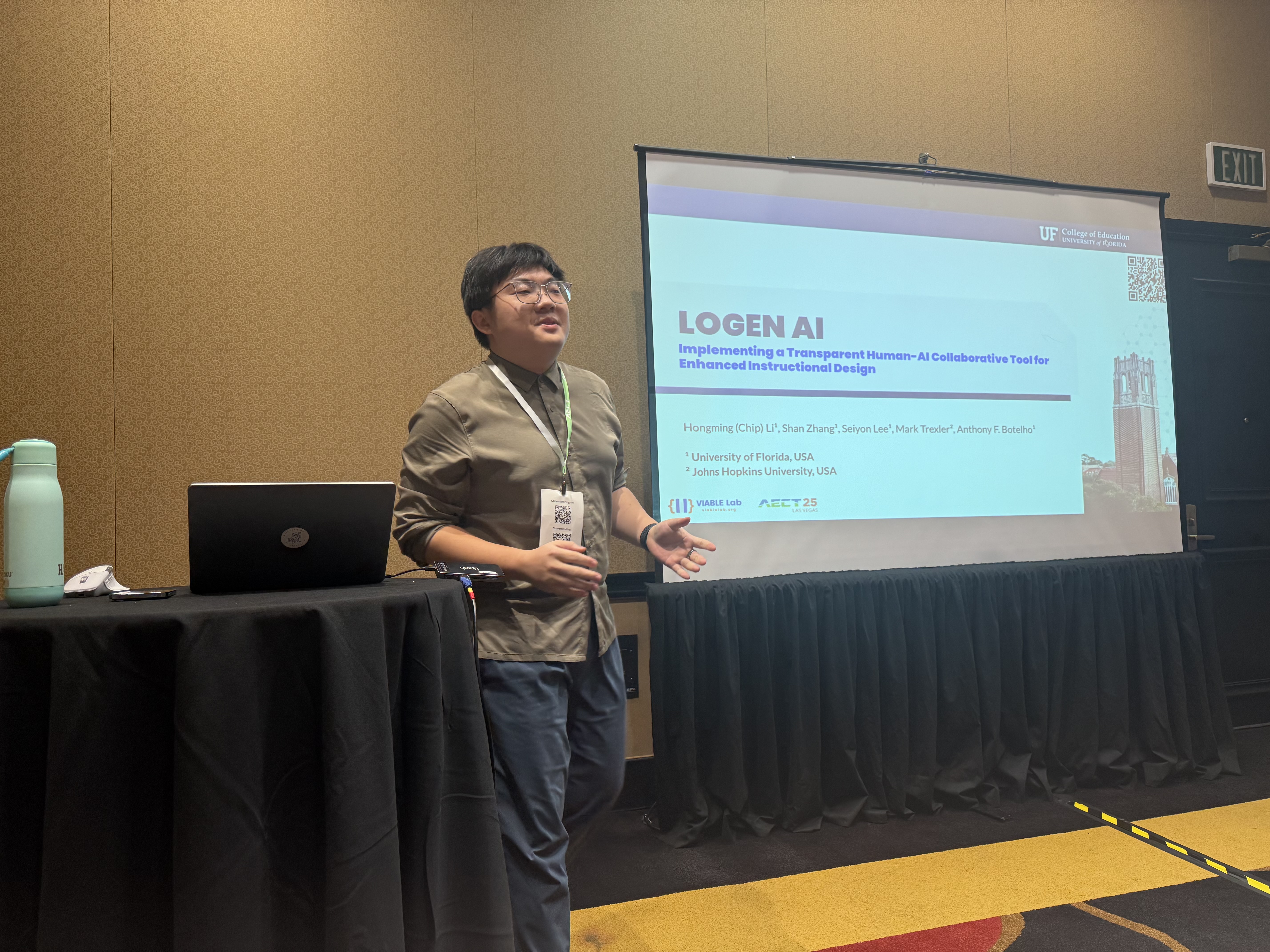
Dr. Anthony F. Botelho
School of Teaching and Learning
University of Florida
Dr. Anthony Botelho is an Assistant Professor of Educational Technology in the School of Teaching and Learning at the University of Florida, where he directs the VIABLE Lab. His research combines methodologies from education, cognitive psychology, artificial intelligence, and computer science to develop and deploy innovative technologies that enhance student learning across diverse educational contexts.
At UF, Dr. Botelho leads multiple NSF and IES funded projects, focusing on areas such as multimodal machine learning in mathematics education, data science methods for digital learning platforms, and computer science education. Through these initiatives, he explores ways to enhance student collaboration, develop comprehensive learning platforms, and ensure equity in educational technology, while maintaining his commitment to bridging theoretical research with practical classroom applications.
Before joining UF in 2021, Dr. Botelho served as a Research Scientist at Worcester Polytechnic Institute, where he worked on the ASSISTments project, a leading educational technology platform that provides formative assessment solutions for teachers and students. At WPI, he also earned his Ph.D. in Learning Science and Technologies and M.S. in Computer Science. During this time, he led several pioneering projects including DRIVER-SEAT (Dialogue Reinforcement Infrastructure for Volitional Exploratory Research) and QUICK-Comments, which focused on developing AI-powered tools to help teachers provide more efficient and meaningful feedback to students. His commitment to keeping teachers "in the driver's seat" of educational technology has been a cornerstone of his research approach.
Through interdisciplinary collaboration with educators and researchers, he works to design and refine human-in-the-loop systems that advance our understanding of how students learn. His research experience spans quantitative methodologies including learning analytics, machine learning, and natural language processing to study cognitive, behavioral, and affective aspects of learning in both online and classroom settings.


